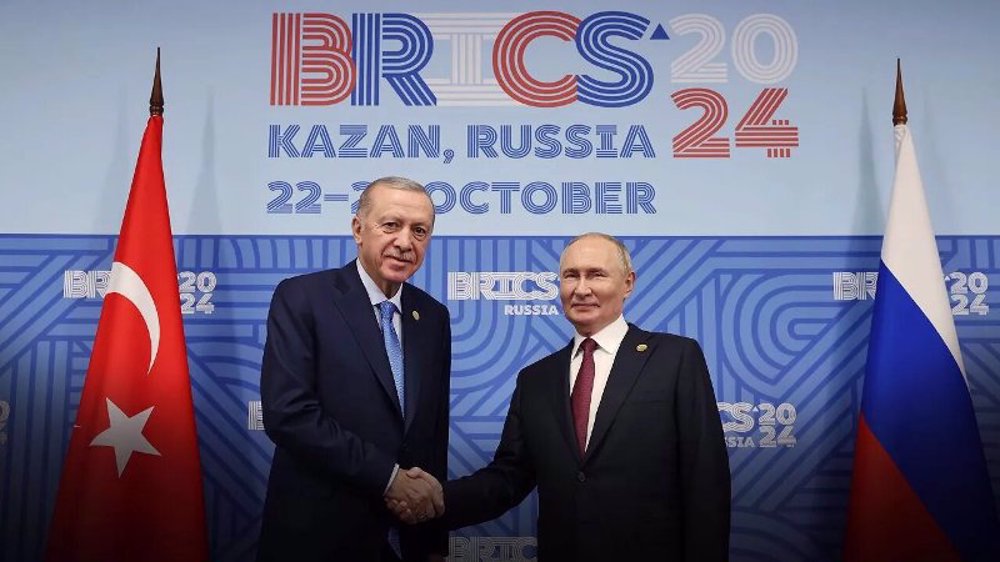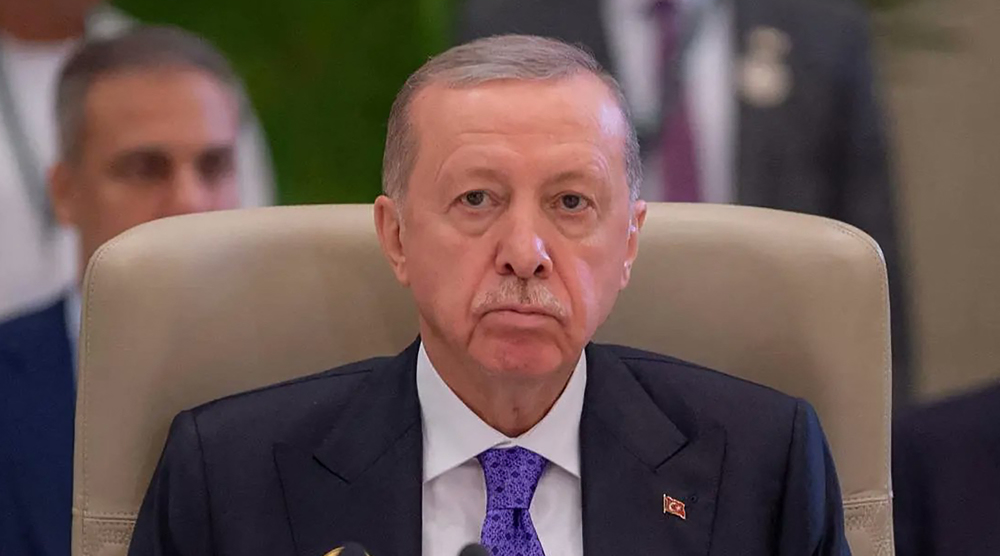Parties mustn't have immunity from prosecution: Turkey PM
Turkish Prime Minister Ahmet Davutoglu has called for stripping all parties of their parliamentary immunity to allow for prosecution in an apparent bid to intensify pressure on pro-Kurdish opposition lawmakers.
“Let’s lift all these immunities. There are 506 motions before parliament on lifting immunity,” Davutoglu said in Ankara on Thursday.
He further noted that all parliamentary immunities can be removed “right away” by adding a temporary clause to the constitution.
The Turkish parliament could review the issue of immunity next week if other parties throw their weight behind the proposal like the ruling Justice and Development Party (AKP), he added.
The Turkish premier also emphasized that the necessary steps on the issue would be taken next week if the initiative was accepted.
“In line with that answer, we can take a stand,” Davutoglu stated.
In response, Bulent Tezcan, deputy chairman of Turkey’s main opposition Republican People's Party (CHP), said his party supports lifting immunity except for remarks MPs make at the podium in the parliament.
On Wednesday, the prime minister’s office filed a request to the Turkish legislature to remove the parliamentary immunity of Tugba Hezer Ozturk, a deputy from the pro-Kurdish Peoples’ Democratic Party (HDP).

Last week, similar requests were made for five other HDP figures, including co-leaders Selahattin Demirtas and Figen Yuksekdag as well as deputies Selma Irmak, Sirri Sureyya Onder and Ertugrul Kurkcu.
The motions stemmed from speeches the politicians gave last December, in which they allegedly backed autonomy for parts of southeastern Turkey.
Turkish President Recep Tayyip Erdogan has repeatedly claimed that HDP is an extension of the Kurdistan Workers’ Party (PKK), which Turkey deems as a terrorist group. The HDP categorically denies any affiliation to the PKK..
Ankara has been engaged in a large-scale campaign against the PKK in its southern border region in the past few months. The Turkish military has been pounding the group’s positions in northern Iraq.
The operations began in the wake of a deadly July 2015 bombing in the southern Turkish town of Suruc. More than 30 people died in the attack, which the Turkish government blamed on the Takfiri Daesh terrorist group.
After the bombing, the PKK militants, who accuse the government in Ankara of supporting Daesh, engaged in a series of reprisal attacks against Turkish police and security forces, prompting the Turkish military operations.
VIDEO | Yemen’s armed forces target Israeli airbase amid nationwide pro-Palestinian rallies
Putin vows more test of new hypersonic missile
VIDEO | Jordanians continue rallies to denounce Israeli genocide in Gaza, Lebanon
6 Israeli soldiers commit suicide: Reports
Diplomat discourages recourse to pressure, intimidation, confrontation against Iran
UN: 2024 deadliest year for aid workers amid genocide in Gaza
Gaza health official warns of hospital shutdowns within 48 hours
Israel kills 5 more paramedics in southern Lebanon: Health ministry














 This makes it easy to access the Press TV website
This makes it easy to access the Press TV website